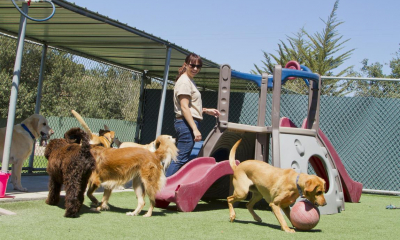
The legislation that applies to your business depends very much on the nature of the business - what it does and how it operates. The following is an outline of some of the areas where legislation may be particularly relevant to your business.
What licences does a wholesaler need?
Licensing requirements will depend very much on what type of business you have in mind. For example, if your business will deal in food you will need to register as a food business with your local environmental health department.
If you run delivery vehicles over 3.5 tonnes you will need an operator's licence.
If you turn over £2 million or more each year and you handle 50 tonnes or more of qualifying packaging materials then you must register as a packaging waste producer with the Environment Agency or the equivalent regional regulator.
If you plan to play background music in your premises you will need a Music Licence from PPL PRS Ltd. There is an annual fee for this which you can pay online on the PPL PRS website.
These are some of the more common licences and registrations that can apply to wholesaling businesses, but there may be specific ones that apply to your particular sector. Make sure that you research this fully before commencing trading.
Some of the types of wholesale business which are likely to be affected by particular licensing or registration requirements include:
- medicinal products and controlled drugs
- alcoholic drinks, where all wholesalers must be registered with HMRC under the Alcohol Wholesalers Registration Scheme
- fireworks and explosives
- firearms and ammunition
- pesticides
Trade associations representing your particular type of business may be able to give some guidance. You can find a directory of trade associations on the Trade Association Forum website.
Packaging waste regulations
Wholesalers with an annual turnover of £2 million or more and which handle 50 tonnes or more of qualifying packaging materials must register with the Environment Agency in England, Natural Resources Wales, the Northern Ireland Environment Agency, or the Scottish Environment Protection Agency (SEPA) in Scotland and carry out the necessary recovery and recycling of packaging waste. Most opt to join one of the compliance schemes currently operating. A fee is paid and packaging data supplied to the scheme which then takes on and discharges the recycling and recovery obligations which the member business would have had. For further details contact the Environment Agency, Natural Resources Wales, the Northern Ireland Environment Agency or SEPA.
Alcohol
If you're only selling alcohol to other businesses and not to members of the public, you don't need to have an alcohol licence. But you do need to be registered with HMRC under the Alcohol Wholesalers Registration Scheme that was brought in at the start of 2016. Your business needs to be 'fit and proper' to be accepted and HMRC might make a pre-registration visit to your premises to make sure it meets these requirements. From April 2017 (the date from which all alcohol retailers must use only registered wholesalers) you have to make sure that your sales invoices include your unique reference number.
Duty stamps for spirits were introduced as part of a range of measures to reduce alcohol fraud. All spirits with a strength of 30% or more alcohol-by-volume and in bottles of more than 35cl intended for sale in the UK must bear a duty stamp and it is an offence to possess, transport or offer for sale unstamped goods.
Tobacco products
If you have non-tobacco customers then tobacco must only be sold from a windowless tobacco room and you must have in place systems or procedures to make sure that only legitimate tobacco sellers can enter it. Tobacco products must be covered when outside the tobacco room, for example when in a customer's trolley or when staff are restocking.
Tobacco products must have a fiscal mark to show that UK duty has been paid on them. Cigarette packs and other tobacco products must comply with standardised plain packaging requirements. Sales of small packs of cigarettes and hand rolling tobacco are now banned.
Food safety
All businesses in the food sector must comply with strict food safety legislation. Before you open, you must register your business with the local authority environmental health department. Your local environmental health officer will be able to give you advice and guidance as to what you should install in your premises to make sure your operating areas are hygienic and how to comply with the requirements of the Food Safety Act.
You will also have to make sure that food products are correctly labelled.
Waste electrical and electronic equipment
Wholesalers who import electrical goods need to be aware of regulations concerning waste electrical and electronic equipment (WEEE) which were introduced at the start of 2007. The regulations aim to minimise the impact of WEEE on the environment. Importers of electrical or electronic equipment need to join a compliance scheme approved by the Environment Agency, the Northern Ireland Environment Agency or SEPA. The compliance scheme will undertake the required recycling and recovery of waste appliances on behalf of the importer. You can find out more on the Gov.uk website.
Waste batteries
If you distribute portable batteries you may need to participate in a free used battery take-back scheme. For example you could provide bins in your warehouse or depot or collect used batteries from your customers. You can find out more on the Waste Support website.
Chemicals regulation
Businesses that sell or distribute chemicals may be affected by regulations referred to as REACH which stands for the Registration, Evaluation, Authorisation and Restriction of Chemicals and CLP, which covers classification labelling and packaging. REACH and CLP cover most chemicals that are manufactured or imported into the EU. You can find out more about how REACH and CLP may affect you on the Health and Safety Executive (HSE) website.
Substances that could be used to make explosives
There are special regulations in place to prevent substances that could potentially be used to make explosives getting into the wrong hands. Some substances, which would normally only be available from specialist suppliers, are regulated and can only be supplied to a member of the public who has a licence to obtain and possess them. Other substances, although not regulated, are nevertheless of potential concern. Examples of these, which are referred to as 'reportable substances', include sulphuric acid (present in some strong cleaning products) and the solvent acetone. Any products labelled with the 'skull and crossbones' hazard pictogram are also potentially of concern, although they are not classified as reportable under the regulations.
If you deal with members of the public you must report any suspicious transactions (or disappearances due to theft) involving regulated or reportable substances to the police Anti-terrorist Hotline on 0800 789 321. A transaction could be suspicious for various reasons, for example because the customer insists on paying cash and/or wants an unusually large quantity of a product containing a reportable substance.
There's more information for businesses about regulated and reportable substances on the Gov.uk website.
Goods vehicles
If you operate delivery vehicles over 3.5 tonnes you will need to comply with goods vehicle legislation. Bear in mind that the number of hours a driver can drive without a break are strictly regulated. You may need to fit and use tachographs, which record the time in use, the distance travelled and the speed of the vehicle. All new goods vehicles must be fitted with a digital tachograph. Visit the Gov.uk website for further details.
Insurance for a wholesaler
Contact an insurer or insurance broker and explain exactly how your business will operate - they will then explain what insurance cover you must have by law, and other cover you should consider. This might include:
- premises, premises contents and stock
- goods in transit
- freezer breakdown
- cash
- business interruption
- employer's liability
- public and product liability
- motor insurance (for delivery vehicles)



